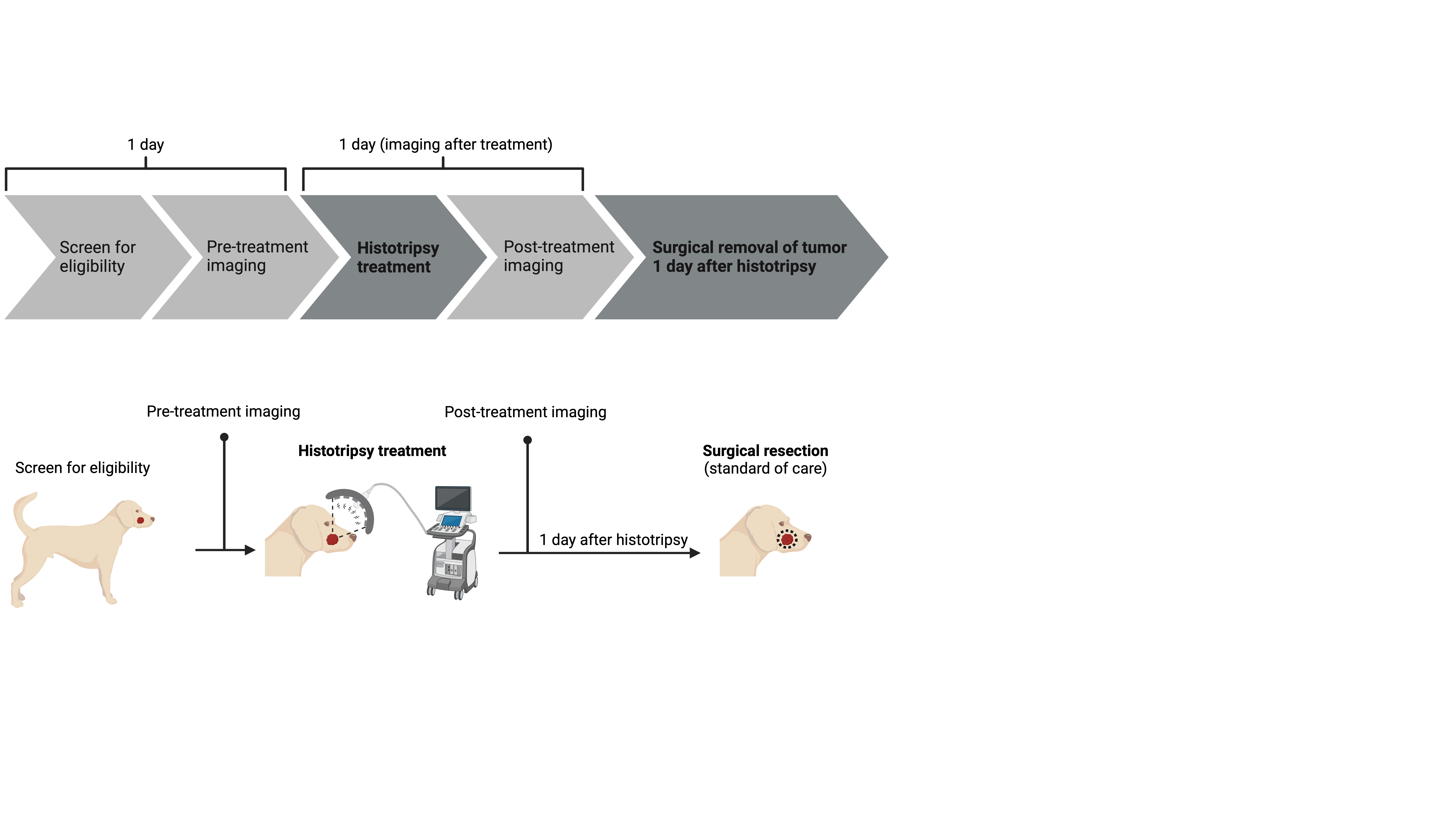Non-invasive treatment of oral tumors in dogs
Evaluating an ultrasound technology for the non-invasive treatment of oral tumors in dogs
Purpose
To evaluate the effects of histotripsy, a high-precision ultrasound-based treatment that can non-invasively destroy tumor tissue without radiation or heat, on dogs with oral tumors.
Background
Histotripsy is an emerging technology that uses focused ultrasound waves to mechanically destroy tumor tissue. Histotripsy has the ability to precisely destroy tumors non-invasively and without using heat or radiation. Histotripsy also has the potential to stimulate the immune system into fighting off remaining or microscopic tumor. Our team’s previous research has evaluated the safety and efficacy of histotripsy for bone tumors, soft tissue sarcomas, and brain tumors in dogs. Additionally, histotripsy was FDA-approved for the treatment of liver tumors in humans in 2023, with promising clinical results. We are now interested in how histotripsy affects oral tumors in dogs.
Eligibility
- Confirmed or probable diagnosis of oral cancer- based on imaging or other diagnositcs such as cytology or histopathology
- Owner has elected for standard-of-care surgical resection
Exclusion Criteria
- Previous local or systemic tumor treament (i.e. chemotherapy, immunotherapy, radiation, or surgery)
Study Design
Dogs will undergo CT and/or MRI scans (if not obtained previously during diagnostics) to visualize the oral tumor and plan the histotripsy treatment. The histotripsy treatment approach will be patient-specific to accommodate for unique tumor sizes and locations.
On the day of treatment, hair will be removed from the area overlying the tumor to allow for maximum transmission of the ultrasound waves. Histotripsy treatment will be delivered non-invasively through the skin to mechanically disintegrate the underlying tumor. Dogs will be maintained and monitored under anesthesia. After the treatment, images (CT and/or MRI) will be taken to assess the immediate effects of the ultrasound treatment. Most patients recover uneventfully and go home the same day.
One day after the completion of histotripsy treatment, dogs will undergo standard-of-care surgical resection. This allows us to assess the effects of the ultrasound treatment. At this point, participation in the study is complete.

Compensation
There are no costs to the owner for the dog to participate in the study. All histotripsy treatment related costs will be covered by the study. The study will also pay $2500 towards the cost of oral tumor resection surgery performed at Virginia Tech. The study does not cover costs associated with any complications from study procedures.
Contact
- If you'd like to proceed with a study screening appointment, please ask your veterinarian to initiate a referral. Please note that the cost of the screening visit is typically not covered by the study.
- If you'd like to be contacted with more information about this study and/or would like to discuss a case prior to referral, please complete our phone consultation request form.
- If your query is urgent, please call the Animal Cancer Care and Research Center at 540-526-2300.



